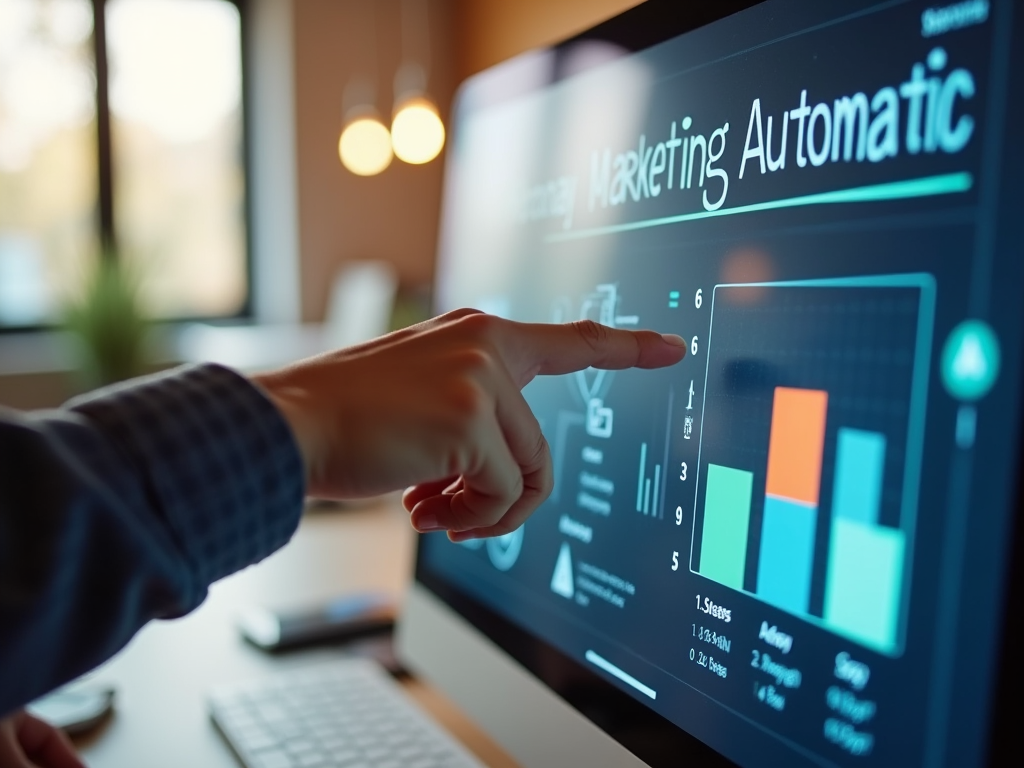The Role of Automation in Digital Marketing

In today’s fast-paced digital landscape, automation plays a crucial role in enhancing marketing efficiency and effectiveness. It streamlines tasks, improves precision in data handling, and allows marketers to focus on strategic initiatives. Automation revolutionizes how businesses engage with their customers, target audiences, and analyze performance metrics. This article will delve into the various dimensions of automation in digital marketing, exploring its benefits, tools, and the future it promises.
Understanding Digital Marketing Automation

Digital marketing automation refers to technology that manages marketing processes and campaigns across multiple channels automatically. It provides capabilities for automating repetitive tasks like email marketing, social media posting, ad campaigns, and customer segmentation, freeing marketers from routine chores. Here are some key components:
- Email Marketing Automation
- Social Media Scheduling
- Customer Relationship Management (CRM)
- Content Management Systems (CMS)
- Analytics and Reporting Tools
With these tools, marketers can design campaigns that target specific audience segments with precision. Automation ensures that the right message reaches the right people at the right time, significantly enhancing the effectiveness of marketing strategies. By leveraging data, marketers can customize interactions based on customer behavior, leading to improved engagement and conversion rates.
The Benefits of Automation in Digital Marketing

The advantages of implementing automation in digital marketing are extensive. Firstly, it maximizes productivity as marketers can focus on strategy and creativity rather than mundane tasks. Secondly, it enhances the customer experience by providing personalized content that resonates. Here’s a closer look at the benefits:
- Increased Efficiency: Automating tasks like social media posting and email sequences saves time.
- Better Targeting: Automation tools analyze user data, allowing for more accurate audience targeting.
- Consistency: Automation ensures consistent messaging across channels, maintaining brand integrity.
- Data-Driven Insights: Automated systems provide real-time analytics that inform marketing strategies.
- Cost-Effective: Reduces the need for extensive manual labor, allowing for a more efficient allocation of resources.
With improved efficiency, marketers can deliver high-quality content and engage more effectively with their target audience. Moreover, the data-driven approach empowers them to make informed decisions, ultimately driving better business outcomes.
Choosing the right tools for automating your digital marketing efforts is pivotal. Various platforms cater to different marketing needs, such as email marketing, social media management, and analytics. Here are some popular tools:
- HubSpot: An all-in-one platform for CRM, email marketing, and content management.
- Mailchimp: Well-known for email marketing automation and audience insights.
- Zapier: Connects various apps for seamless workflow automation.
- Hootsuite: Offers comprehensive social media management and scheduling features.
- Google Analytics: Provides in-depth insights into marketing performance and customer behavior.
These tools simplify the complexity of managing digital marketing campaigns and enable teams to optimize performance effortlessly. By integrating these tools into existing marketing strategies, businesses can significantly enhance their operational capabilities and engagement efforts.
The Future of Automation in Digital Marketing
As technology continues to advance, the scope of automation in digital marketing is poised to expand even further. We are witnessing the rise of artificial intelligence and machine learning capabilities that allow for predictive analytics and advanced customer segmentation. Future trends that can shape this automation landscape include:
- Greater Personalization: Leveraging AI for delivering personalized experiences.
- Enhanced Customer Insights: Predictive analytics enabling a deeper understanding of consumer behaviors.
- Omnichannel Marketing Automation: Streamlined experiences across various platforms and devices.
- Chatbots and AI: Automating customer service and engagement through intelligent conversational agents.
The evolvement of automation tools will help marketers stay ahead of the competition by enhancing how they connect with customers, making real-time adjustments based on data, and ultimately, creating a more engaged customer base.
Conclusion
In conclusion, automation plays a transformative role in digital marketing by improving efficiency, consistency, and customer engagement. By adopting automation tools, businesses can significantly enhance their marketing efforts, adapt to consumer preferences, and drive better results. As innovation continues to evolve, embracing automation will be key to sustaining competitive advantage in the ever-changing digital landscape.
Frequently Asked Questions
1. What is marketing automation?
Marketing automation refers to software platforms and technologies designed to more effectively market on multiple online channels. It automates repetitive tasks, manages customer interactions, and provides data analysis for improved marketing strategies.
2. How does automation improve customer experience?
Automation allows businesses to deliver personalized content based on consumer behavior, preferences, and interactions. This ensures customers receive relevant offers and communications, enhancing their overall experience.
3. Can small businesses benefit from marketing automation?
Absolutely! Marketing automation can help small businesses streamline their processes, saving time and resources. It enables them to compete more efficiently by optimizing their marketing campaigns.
4. What are some common tools used for marketing automation?
Some commonly used tools include HubSpot, Mailchimp, Hootsuite, Zapier, and Google Analytics, each serving different aspects of marketing automation like email campaigns, social media management, and analytics.
5. Why should businesses invest in marketing automation?
Investing in marketing automation helps businesses increase efficiency, enhance targeting, improve customer engagement, and ultimately drive better sales and growth while reducing manual errors and workloads.